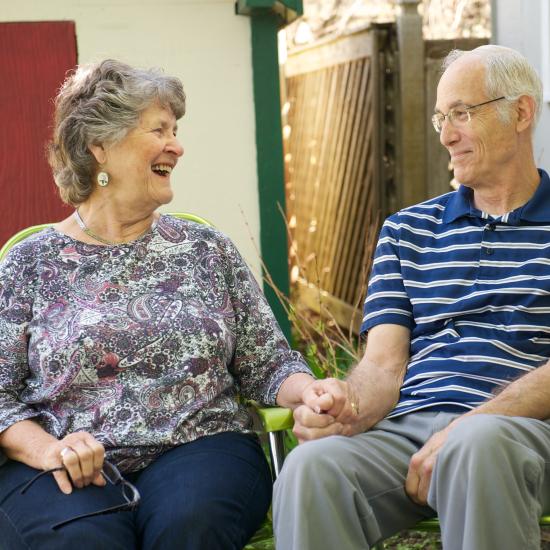Expertise on Caregiving is Incomplete without the Perspective of Caregivers
On a cold, icy evening in St. Paul, a crowd of Minnesotans gathered to talk about family caregiving, specifically the “caregiving sandwich” which translates to those caring for aging parents and children leaving them ‘sandwiched’ in their role as mother/daughter, son/father. This wasn’t a support group, it was a social venue known as “Policy and a Pint” hosted by Citizen’s League and Minnesota Public Radio’s The Current. “Sandwich caregiving” is just one of many scenarios of family caregiving. This topic of caregiving seems so straightforward. But when complications of employment, multi-generational caregiving including grandparents or extended family, health issues, financial concerns, housing, or even resource access barriers arise, caregivers find themselves overwhelmed and uncertain to know where to turn and what to do next.
Caregiving can be complex. Often, it is a core value and responsibility embedded in families and communities for generations. It can also be isolating, frustrating and exhausting. However, an open discussion about the challenges, realities and personal experiences of those caregiving can lead to new opportunities and solutions.
Let's talk about caregiving more often from diverse perspectives
There is no pill, no three-step solution or quick fix to solve the complexities of family caregiving. It is at times hard, emotional, and complicated. The caregivers I have personally talked to readily chose to serve in this role and they are resilient, and willing to challenge the status quo to improve options for others, destined to be following in their path. And, as evidenced by the questions and personal stories shared at this social community event, many can also attest to a fragmented system of information, resources and support for caregivers. Being aware about options, financial implications, future considerations is beneficial and yet, not talked about enough.
Moderated by MPR’s Steve Steel, the panel at “Policy and a Pint” discussed caregiving from their own professional perspectives – from considering finances, employer roles to services designed to support older or disabled adults and caregivers. Chris Farrell, senior economics contributor at American Public Media’s Marketplace, helped us understand the economic aspect of family caregiving, to individuals and society. Pam Sartell, president and owner of The Sartell Group, intentionally structured her small business to support employees who are caregiving, described ways it can be done, and affirmed it is smart for business, and the right thing to do. Because, let’s face it – caregiving can happen at any age. And, as the Director of Aging Services at Wilder Foundation, I believe we need to get creative about how we reach caregivers in rural, urban and other settings to prevent isolation. Resources and the navigation paths to find them need to be simplified.
Caregivers are key to designing relevant resources and support
As accomplished, knowledgeable and aware the panel of experts were of caregiving, in my opinion, the real experts were those experienced caregivers who gathered to be a part of a conversation they knew all too well. They joined in the conversation with personal examples of complex caregiving situations such as understanding caregiving across cultural communities. Concerns were also raised about elder fraud, access to public programs like Elderly Waiver and Medical Assistance (Medicaid), the role of public policy, resource availability in rural versus urban communities, and even evaluation of what is useful and what is missing for caregivers. There are community organizations who not only continue to provide support for caregivers but advocate to improve navigation, simplify access paths and continue to transform caregiving services as well. Nevertheless, those caregivers who know the challenges first-hand are key to designing better, more relevant and practical pathways to solutions alongside professionals who understand the current systems of support.
Conversations about aging and caregiving need to come out of the shadows so the community and caregivers can support one another and truly understand the types of resources and support needed, while imagining new ways to address the barriers to access. Caregiving isn’t a problem that needs a solution and it isn’t a recent trend that will someday go away. Instead, we need to look at how our lives, community design and societal agendas have changed and become more complex and contradictory to informal caregiving. We can do better, together. Thank you to everyone who showed up to challenge the conversation and shed a personal light on issues needing attention. Your resiliency and commitment to sharing your needs, perspectives and ideas inspires us to keep the caregiving conversation going!
Get caregiving support and resources from Wilder Foundation
- Visit our Caregiving Resource Center
- Call us at 651-280-CARE (2273)
- Email us at caregiving@wilder.org
Other community organizations that offer caregiver support
- DARTS - Caregiver Services
- CAPI USA - Caregiver & Eldercare
- Family Means - Caregiving and Aging
- Jewish Family Service of St. Paul
- Jewish Family and Children's Service of Minneapolis - Aging Services
- Lutheran Social Service of Minnesota - Caregiver Support
- Senior Community Services - Senior Outreach & Caregiver Services
- Volunteers of America MN & WI - Culturally Responsive Caregiver Support and Dementia Services (African American, East African and Hmong)
Maureen Kenney is the Director of Aging Services at the Wilder Foundation’s Community Center for Aging.
